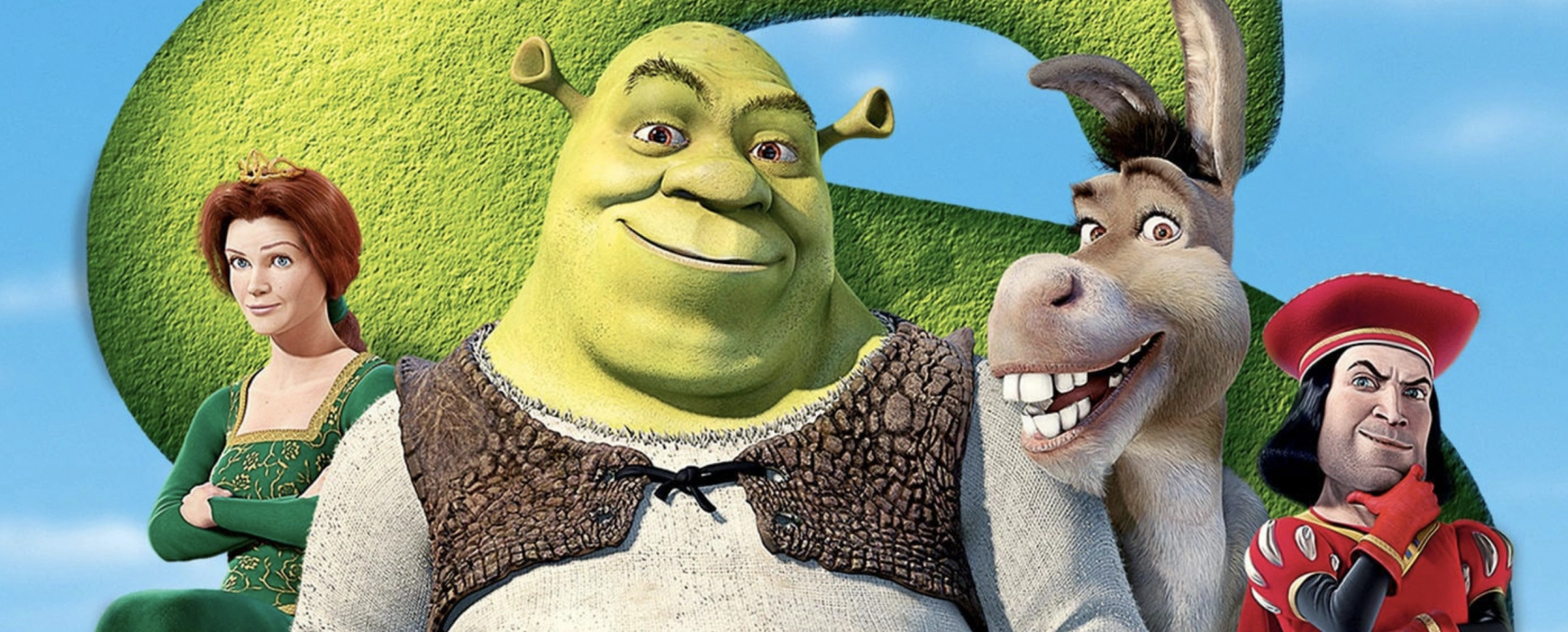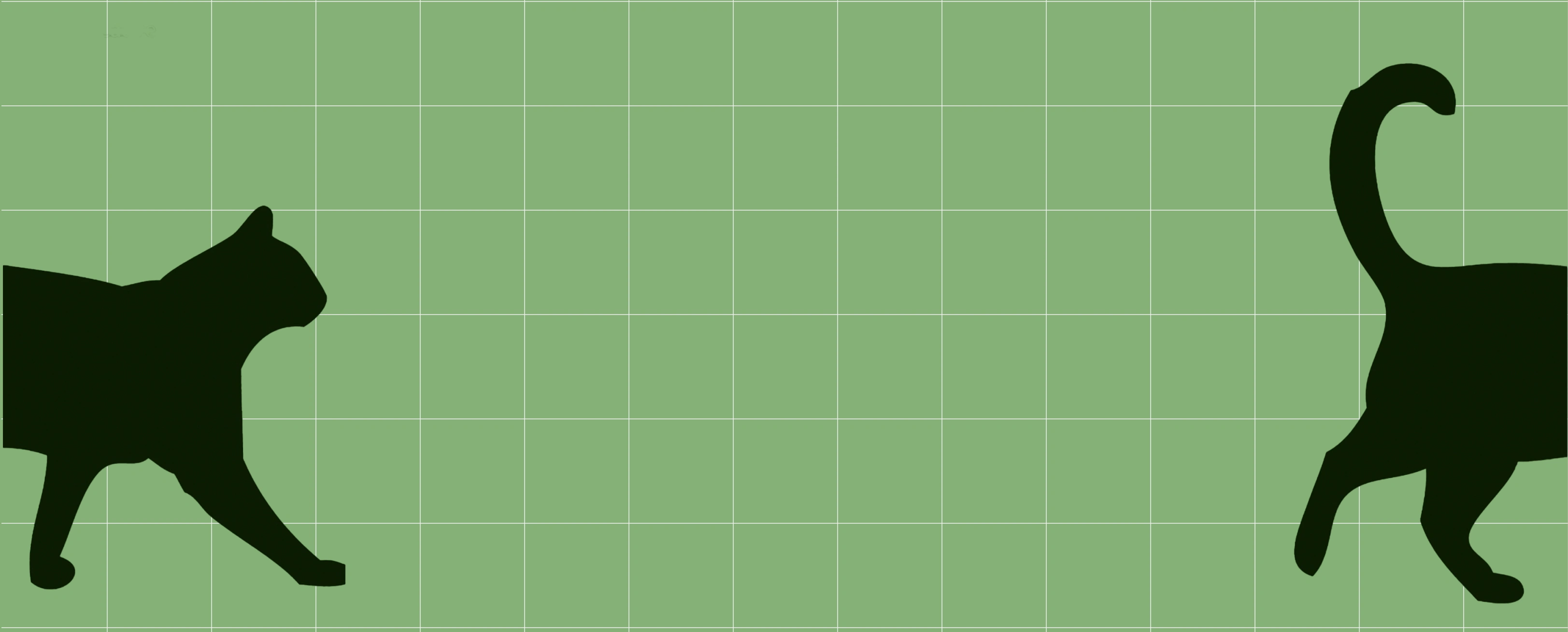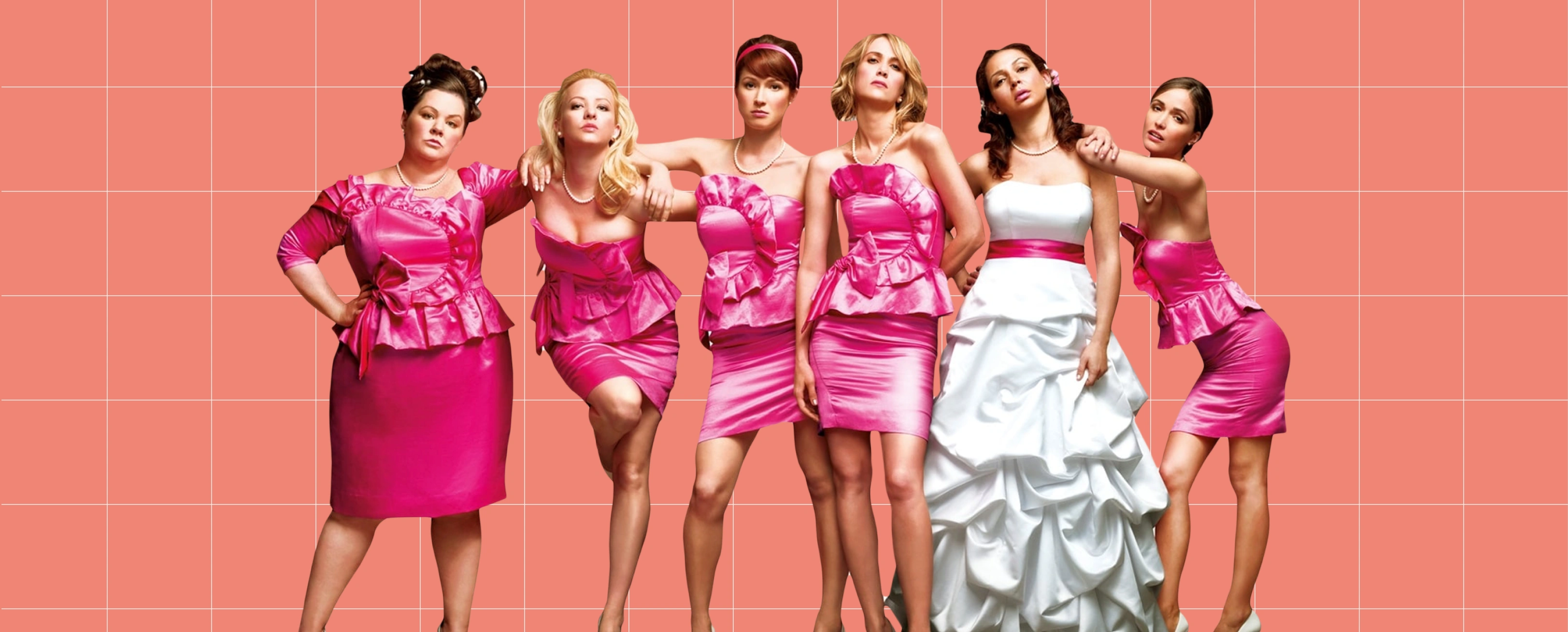Arrested Development is a wealth of hilarity that mostly stems from its character-building. Michael (and maybe his son) is the only one who appears somewhat normal, while the rest of the family are almost cartoonish in how they act. We’ll be focusing on season 1 of Arrested Development here, both because it’s most people’s favorite and because the characterizations of a lot of the cast start to change significantly as the show goes on (one of the complaints about later seasons).
We'll examine their personality types using the Enneagram here, highlighting and analyzing the cues we think are most important in identifying their types. The Enneagram types we’ve assigned to Michael, Tobias, Lindsay, Lucille, George Michael, Maeby, GOB, George Senior, and Buster are our best guesses, given our observation of their motivations, decisions, behaviors, speech, body language, and more. We’ll explain which type we think they are and why, using examples when relevant.
Spoilers for Arrested Development ahead. Note that type descriptions below come from Blueprint, our Enneagram app .
What Enneagram type is Michael Bluth?
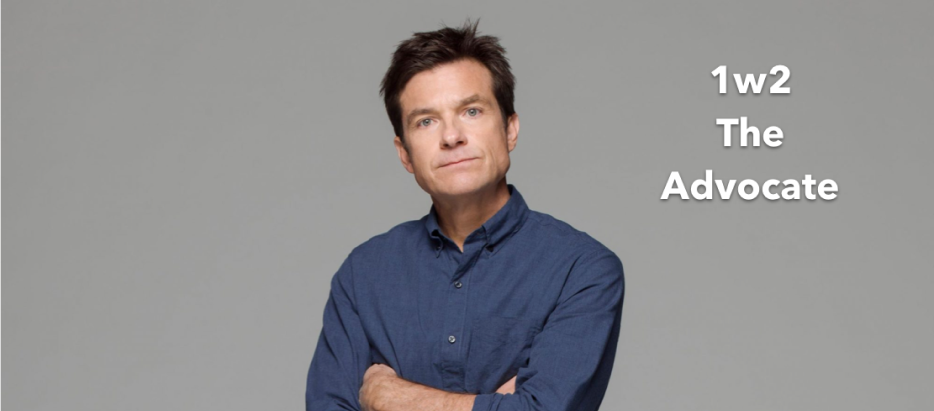
Our best guess for Michael, played by Jason Bateman, is a One with a Two wing (the Advocate): the Advocate is warm, passionate, principled, improving, moralizing, self-controlled, inflexible, nitpicky, and judgmental. They are thoughtful and purposeful drivers of change, but can be bitter and self-righteous.
The audience meets Michael in the pilot of the show when he’s about to pack up and leave the rest of his unstable family after his father screwed him over on inheriting the Bluth business. Yet he stays after seeing that his son, George Michael, has been happy to have his family nearby. There’s also the sense that Michael stays so that he can keep things in order, and in doing so, can demonstrate consistently that he’s the only “sane one” (or as Lindsay says, “ the noble one ”).
It’s classic type One (and a little type Two, which is Michael’s probable wing) to take a self-sacrificing stance in order to prove your “goodness." Others point out that Michael has a drive to appear more virtuous than they are, and he doesn’t even try to hide it:
Michael: “I'm a saint, you know. I'm a living saint, and I get absolutely nothing out of it.”
Lindsay: “Well, you get a false feeling of superiority.”
Michael: “That is nice, but this time it's not enough.”
Michael even recognizes how judgmental he can be:
Michael: “I don’t know, Lindsay; I mean, who am I to judge? On the other hand, I am doing it anyway, so let me suggest before you talk divorce, at least consider a separation. You know, you do have a kid.”
The pattern of “Michael gets exasperated while trying to do the right thing in spite of his absurd family” ties the show together. Nearly everyone around him is a fraudster, cheat, liar, prisoner, waster of resources, and/or emotional rollercoaster, which pushes Michael to behave better than all of them. As a One, he’s the foil for the moral bankruptcy of the rest of the cast.
Also in Enneagram One fashion, Michael is a detail-oriented person. There’s a scene where he tells his son that it’s fun to do “a little cost projection analysis for a mini-mall,” which excites George Michael too (and as we’ll talk about below, we think George Michael is the same Enneagram subtype as his father). There’s a stereotype about Ones that they love a good spreadsheet or grammar correction, and like most stereotypes, there’s some truth in them.
Ones tend to represent conscientiousness, consistency, morality, and integrity–at least when they’re at their best. Their desire to be upstanding people, though, can hamper them in getting what they want. For example, the love triangle between GOB, Marta, and Michael puts Michael in the “nice but uninteresting guy” role pitted against the tumultuous but more interesting “bad guy” role of GOB. And as we’ll discuss later, GOB’s type Seven characteristics provide the chaos that pushes against Michael’s type One fixation on order.
What Enneagram type is Tobias Fünke?
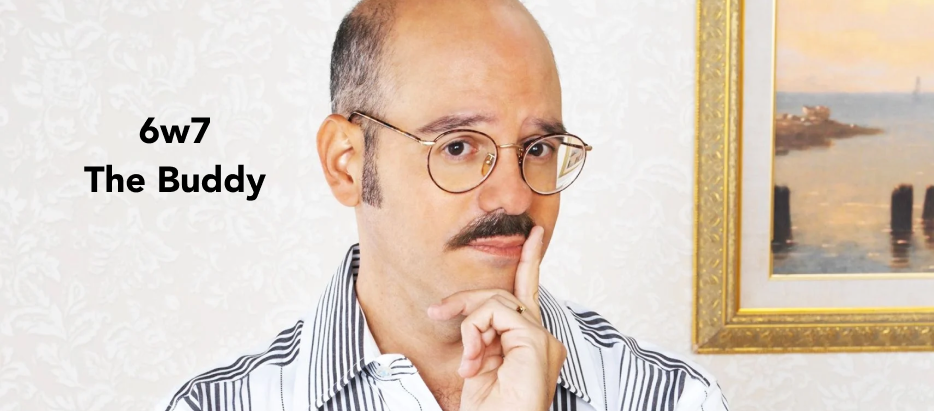
Our best guess for Tobias, played by David Cross, is a Six with a Seven wing (the Buddy): the Buddy is loyal, playful, affable, responsible, monitoring, cautious, ingratiating, suspicious, and defensive. They are lighthearted community-builders who unite others, but can be panicky and complaining.
We see Tobias exhibiting a lot of the traits of the phobic, lower-health Six. He’s extremely anxious and neurotic, from his Never Nude syndrome to his mood swings . The awkward jokes, lack of self-assuredness, and trying too hard to come across well all fit the profile of someone who’s desperately seeking social support and security. He’s always looking for his tribe, yet somehow ending up in the wrong crowd (from gay pirates to leather daddies ) due to his obliviousness. There’s a quality of “ I’m trying to appear positive while suppressing the ever-present panic ” that’s noticeable with most Buddies.
Sixes are notorious over-thinkers, a trait we see clearly in Tobias’s audition for a local commercial. He has only one line (“We’re having a fire sale!”) but convinces himself that he needs to stretch it out as theatrically as possible, adding tons of unnecessary inflection and emotion:
Tobias: "First of all, I love it. Quick question, though: am I panicked about the fire, or am I being brave for everyone else?"
Many phobic Sixes are attracted to careers where there’s a clear path to achievement and definition of success in the field; they tend to be great at the “day in, day out” grind of studying or working but tend not to be big risk-takers. Tobias was Chief Resident of Psychiatry at Mass General for 2 years and did his fellowship in psycholinguistics at MIT before he lost his license. It fits that a Six would be drawn to a long-term academic investment like this. It also fits that he’s incredibly lost after he’s pushed from the industry he knows, trying and failing in fields like acting.
What Enneagram type is Lindsay Bluth Fünke?
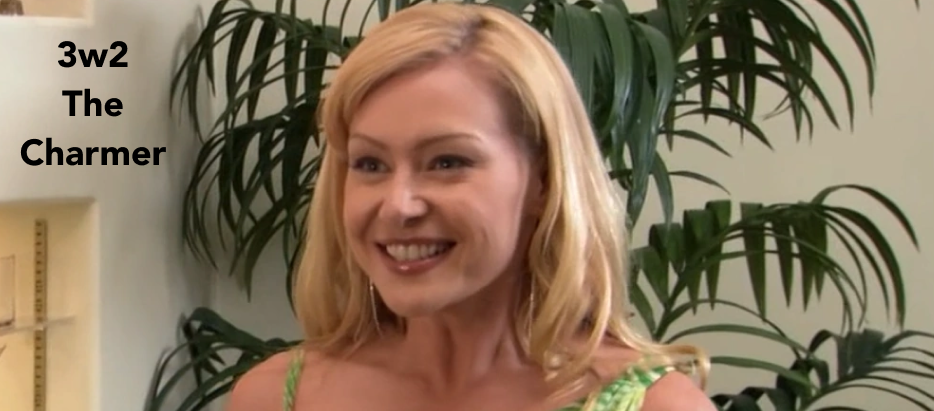
Our best guess for Lindsay, played by Portia De Rossi, is a Three with a Two wing (the Charmer): the Charmer is alluring, engaging, driven, self-assured, chameleonic, performative, image-conscious, self-promoting, and hostile. They are charismatic and personable, but can be grandiose and spiteful.
Like most average-health Threes, Lindsay is all about her image. She spends her days shopping, hosting events for charities that she doesn’t really believe in , and going to expensive restaurants. She’s perceptive about others, sometimes seeing through their manipulations or motivations, but has a bit of a blind spot toward herself (which is common for Threes).
When Lindsay was a child, her father George rewarded her only for her good looks, while her mother Lucille continually insulted her looks. It led to an adult personality that’s both narcissistic and insecure: she looks down at others, yet needs lots of external validation herself (for example, wearing increasingly provocative outfits to prison to visit her father, yet secretly hoping for the inmates to lob compliments at her).
We were back and forth on whether Lindsay was a Three with a Four wing (the Professional), because she’s somewhat cold and doesn’t try to charm all in her orbit. Yet it’s a misperception of the Three that they try to win everyone over. Threes, even Charmers, are highly aware of being efficient with their time, and they only seek to impress people who they believe have value to them or to society. Lindsay can be quite charming and personable when she wants to be, and her focus on being social and needing boosts to her self-esteem is more suggestive of a Two wing. Her inability to hold down a job is also at odds with the Professional’s laser-focus on achievement, which tends to result in workaholism.
What Enneagram type is Lucille Bluth?
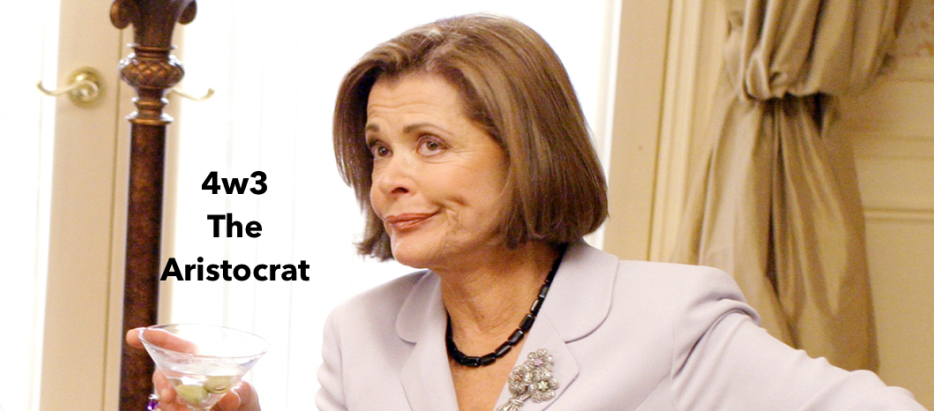
Our best guess for Lucille, played by Jessica Walter, is a Four with a Three wing (the Aristocrat): the Aristocrat is sophisticated, distinctive, lively, expressive, sensitive, extravagant, depleted, envious, and self-punishing. They are aesthetically astute and dramatic individuals, but can be difficult and disdainful.
It’s true that we can’t know someone’s Enneagram type other than our own, but Lucille Bluth is about as close as we can get to certainty: she looks like an Aristocrat to a T. Lucille displays all the traits of an average- to low-health Aristocrat to hilarious effect: she’s dramatic, disdainful, elitist, insulting, self-interested...and overall iconic .
Low-health Aristocrats project an air of cultured superiority. They only want the best of everything, and they act entitled to it. Everything about Lucille, from the fancy furs she wears to her habit of day-drinking martinis to her biting critiques of the rabble around her, screams “I am more sophisticated and distinctive than all of you.”
One behavioral quirk that distinguishes some lower-health Fours is their sub-par treatment of hired staff. For Aristocrats who frequent luxurious restaurants and bars, this means that the targets of their crankiness are often servers. Fours tend to be picky about what they order, both because they view it as a reflection of themselves and because they often have specific tastes, restrictions, and requirements. If you’re someone with a Four in your life, you’ve probably seen them fail to be ready to give their order for far too long, make a ton of special requests, send food back to the kitchen, or complain to the chef. That’s why this scene with Lucille ordering food in a lowbrow restaurant is so perfect: you can hear the disdain dripping off her voice as she’s forced to say the dish’s corny name:
Lucille: “I'll have the Ike and Tina Tuna.”
Waitress: “Plate or platter?”
Lucille: “I don't understand the question, and I won't respond to it.”
Lucille believing that everyone at the Latino Television Academy is a waiter and trying to order drinks from them is another example of the Aristocrat being trapped in her own self-interested world and looking down on those around her: “Can I get a vodka tonic please? I’d like a vodka tonic please….A sea of waiters and no one will take a drink order!” The same goes for her surprise at the lack of a hospital bar and general ineptitude and unwillingness to take care of her own menial chores.
Low-health Fours are known for being excessively dramatic, and Lucille is no exception (for example, her quote on gay people in the pilot episode: “Everything they do is so dramatic and flamboyant. It just makes me want to set myself on fire!”). They feed on emotional turmoil, often creating it with their manipulations. Low-health Fours have a way of making everything about them and their feelings:
Lucille: “You're the only one who chose a spouse I liked and she had to die.”
Michael: “I know, that's rough for you.”
Lucille brainwashes Michael into believing he’s responsible for trying to run GOB off the road on his Segway, when it was really her. She manipulates her children, playing them against each other when she wants them to be divided or planting ideas in them for things she wants but won’t ask for outright (like a surprise party for herself). She bemoans that she’s a “terrible mother” when she wants her kids to assure her that she’s not. Yet she insults her own children all the time because, of course, she sees herself as above social rules:
Lucille: “If you’re saying I play favorites, you’re wrong. I love all my children equally.”
[Earlier that day] “I don’t care for GOB.”
What Enneagram type is George Michael Bluth?
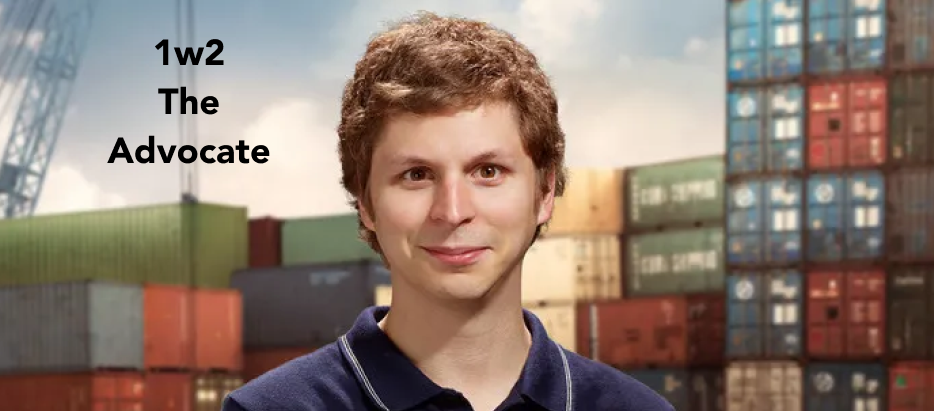
Our best guess for George Michael, played by Michael Cera, is a One with a Two wing (the Advocate): the Advocate is warm, passionate, principled, improving, moralizing, self-controlled, inflexible, nitpicky, and judgmental. They are thoughtful and purposeful drivers of change, but can be bitter and self-righteous.
Like his father, George Michael is a typical do-gooder. He wants to follow the rules, get praised for being an upstanding person ( especially by his father ), and set an example. George Michael’s eagerness to connect with his family and warm, if clumsy, attempts to please suggest that he has a Two wing rather than the more cold and aloof Nine wing. But he lacks some of the self-assuredness that comes with life experience, and a vein of teenage awkwardness flows through everything he does.
Much of George Michael’s plotlines surround his discomfort around breaking the rules. Naturally, then, he’s often put in positions of criminality. From breaking into Bluth headquarters to fearing legal action after kissing his cousin (“I knew it was against the law!”) to dismaying that he’s overseen fraud at the banana stand , George Michael is desperate to show that he’s acting righteously. That’s why his frequent pairing with Maeby , an Eight who refuses to follow the rules, makes for such great comedy. George Michael’s incestuous crush is clearly “wrong” by all societal standards (which means a lot to a One), yet he’s always looking for justifications that it’s okay.
George Michael: "OCD? No, I'm just cleaning up after Aunt Lindsay. She never turns things off."
What Enneagram type is Maeby Fünke?
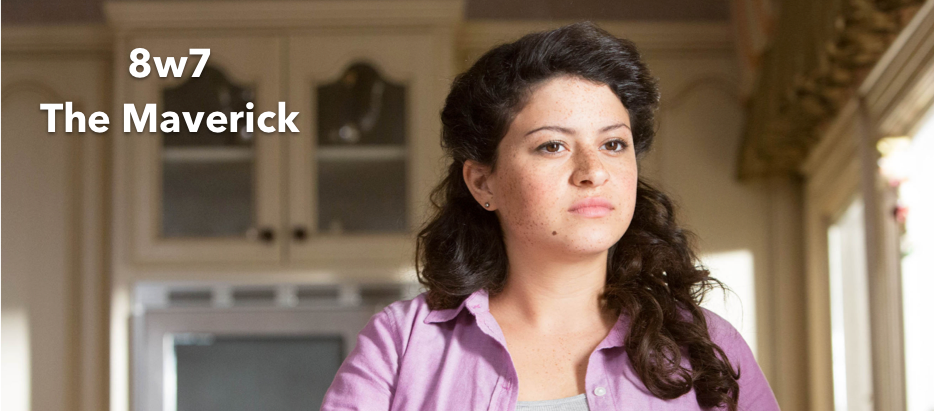
Our best guess for Maeby, played by Alia Shawkat, is an Eight with a Seven wing (the Maverick): the Maverick is enterprising, bold, dynamic, assertive, straight-talking, defiant, over-reactive, forceful, and contentious. They are independent non-conformists who blaze trails, but can be overly combative and explosive.
Not caring what people think of her, taking risks, being an entrepreneur, and giving it to people straight: Maeby fits the Eight description well. Mavericks in particular are high-energy and always taking action. Maeby is always on the move in Arrested Development. She spends little time on emotions or family drama, only involving herself strategically when it’s to her benefit . Instead, she pursues her own goals, which mostly involve gaining more money, power, or both (for example, conning everyone into believing that she’s a movie director or a sick kid ).
Maeby is a blunt speaker who cuts to the core of every issue. She doesn’t appear to have time or interest in filtering what she says to make the listener feel better (for example, responding to her father Tobias’s invitation to spend the day with her: “You have every day off. You don’t have a job”). She doesn’t care about school or grades and is impatient to be an adult so she won’t have to deal with restrictions.
And she’s a rebel to her core, often doing the opposite of whatever her parents want (like starting to wear all leather when her mother Lindsay begins to protest against it). She doesn’t see her parents as authority figures: e.g., when Lindsay tries to punish her for getting a D- and says “You need to learn a little discipline,” Maeby’s response is “Nope, that doesn’t feel right.” When Michael offers to take Maeby with him on Take Your Daughter to Work Day, Tobias and Lindsay both say that Maeby will never agree to do it. But because she hates her parents telling her what to do and wants to undermine them, she readily agrees to go with Michael.
Maeby [to GOB]: “Look, this is kind of weird advice for me to be giving but why don't you just tell him the truth? I mean, he'll respect you for it.”
What Enneagram type is GOB Bluth?
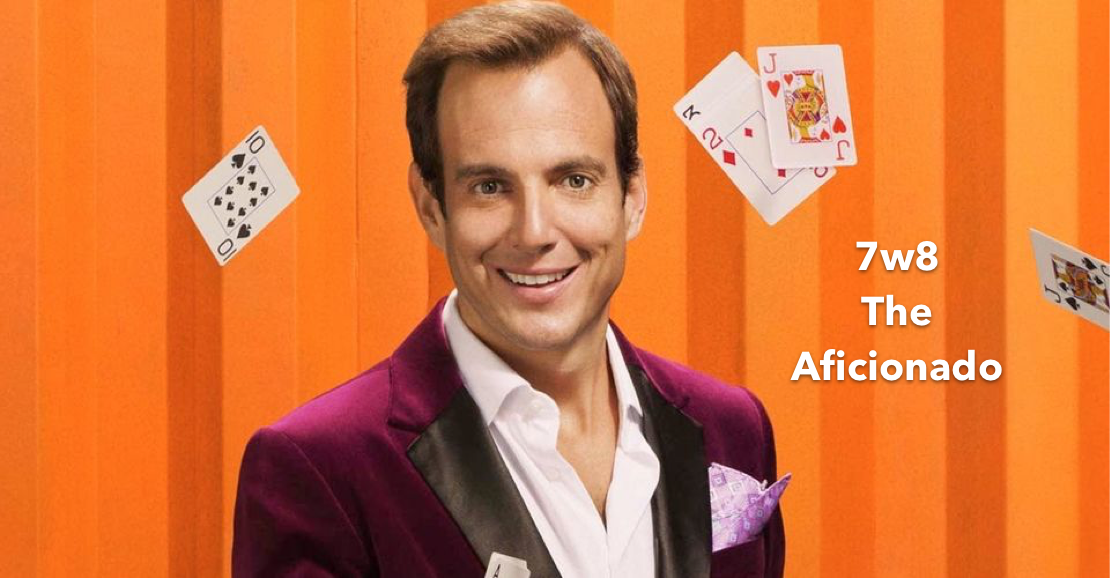
Our best guess for GOB, played by Will Arnett, is a Seven with an Eight wing (the Aficionado): the Aficionado is exuberant, active, versatile, tenacious, thrill-seeking, multitasking, excessive, rude, and reckless. They are Renaissance people who regale others with their knowledge, but can be dissipated and callous.
If Ones like Michael and George Michael represent order, then Sevens like GOB represent chaos. Rules, routines, and predictability make Ones feel comfortable, but they feel like imprisonment to Sevens.
Like all Sevens, GOB’s energy is expansive, excited, intense, and enthusiastic. Will Arnett has said he wanted to play GOB "like a guy who thought of himself as the chosen son, even though it was obvious to everyone else that he was the least favorite." That mix of egocentric and delusional positivity fits an average-health Aficionado well.
GOB’s career choice of magician is a good use of Seven traits, combining showmanship with the challenging problems inherent in creating his illusions. He gets to captivate an audience, yet stay one step ahead of them with the knowledge of how the magic actually works (and Aficionados love to know more than those around them).
GOB [on his illusion]: "Oh, sure, first you dump all over it, now you want to know how it's done."
He’s also allergic to being tied down, as many Sevens under stress are. He avoids commitment with Marta, despite her being out of his league. He’s often on the verge of escaping the family on their father’s yacht. His living situation changes constantly; he’s often crashing at Michael’s or Lucille’s houses. He seems incapable of working steadily or doing even the smallest task (like mailing in that insurance check for the banana stand), and doesn’t want responsibility:
Gob: “I should be in charge. I'm the older brother.”
Michael: “Do you even want to be in charge?”
Gob: “No... but I'd like to be asked!”
GOB does have a few moments of painful clarity when he messes up (“ I’ve made a huge mistake… ”), but he’s running from dealing with it in no time.
What Enneagram type is George Bluth?
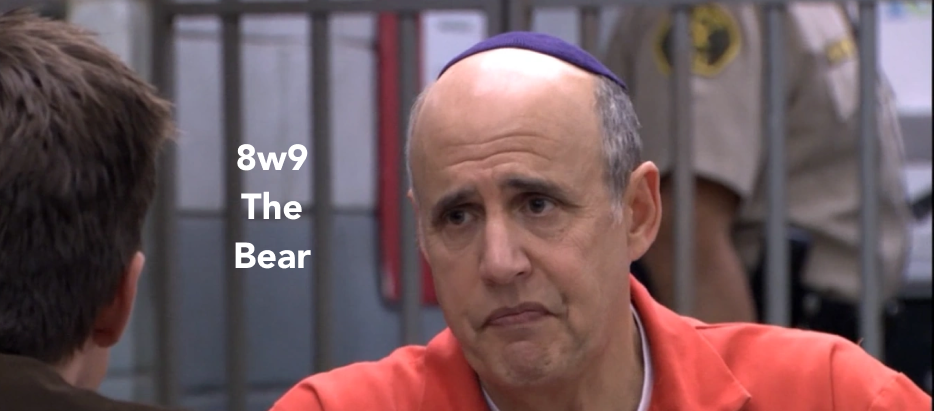
Our best guess for George, played by Jeffrey Tambor, is an Eight with a Nine wing (the Bear): the Bear is protective, quietly strong, resolute, shrewd, watchful, territorial, objectifying, coarse, and provoking. They are attuned to others and secretly tender-hearted, but can be selfish and menacing.
George is a bit tough to type because he doesn’t have that much screen time and spends most of it behind bars. Typing him was more of a process of elimination: he’s not morally upright enough to be a One, he isn’t people-oriented enough to be a Two, he’s too rough around the edges to be a Three, he’s not feelings-oriented enough to be a Four, he’s not intellectual enough to be a Five, he’s not anxious enough to be a Six, he’s not energetic enough to be a Seven, and he’s not empathetic enough to be a Nine. That leaves Eight, and between the Maverick (8w7) and the Bear (8w9), he fits better with the gruff, cold, and harsh attitude of the Bear.
Like most Eights, George has a lot of self-confidence. Too much, you could say. For example, he hands the company over to his wife Lucille before he’s arrested for fraud and theft; when Michael visits him in jail, George states with a wink, “They can’t arrest a husband and wife for the same crime.” Michael corrects him that yes, they can, and it’s clear from George’s face that he never actually researched that question. The fact that George is even in jail for self-dealing fits the profile of a low-health Eight, given that they can be single-mindedly focused on improving their own situation while breaking the rules and using others around them as pawns.
Eights value being in control of their own lives, which leads many of them to run their own businesses. George has a history of entrepreneurship, from The Cornballer to the Banana Stand to his Caged Wisdom tape series in jail, where he tries to monetize his conversion to Judaism. And of course there’s The Bluth Company itself.
They are aware of power dynamics and usually know who has (or lacks) power in any situation. They seek out power for themselves, and in less healthy Eights, this power can warp them. That sounds like the case here, when George says, “Hell, I've been so corrupted by my power that I even enjoyed firing my own twin brother. You should have seen his face when he was begging me not to."
Lastly, we get the sense that George is a man of substantial appetites, both for ice cream sandwiches and sex (especially given his longtime affair with his secretary, Kitty). Lust is the vice of the Eight; they tend to consume almost to the point of bursting and often have a hard time seeing the downstream consequences of their urges.
What Enneagram type is Buster Bluth?
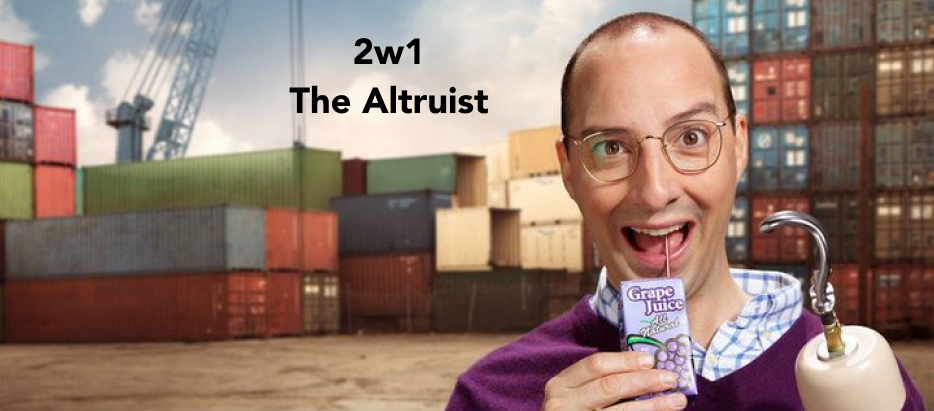
Our best guess for Buster, played by Tony Hale, is a Two with a One wing (the Altruist): the Altruist is loving, compassionate, encouraging, devoted, well-intentioned, serving, worrying, guilt-ridden, and passive-aggressive. They are warm-hearted and truly charitable, but can be self-critical and victimized.
Buster is certainly a worrier, which may lead some to believe that he’s a Six. But what makes us believe that he’s a (probably average to lower-health) Two is that his worries focus mainly on his relationships, especially his closeness with his mother, Lucille. Sixes tend to seek security through a wide variety of sources, including their surrounding environment, finances, information, relationships, and more. Personal relationships are part of the overall picture of their security, but only a part. Twos also seek security, but it’s almost entirely achieved through close personal relationships. Buster exists to please and be needed by others (again, particularly his mother).
The show continually references how dependent Buster is on Lucille and that the two have an unhealthy attachment:
George (on Buster): “Maybe it was the eleven months he spent in the womb. The doctor said there were claw marks on the walls of her uterus. But he was her ‘miracle baby.’”
His relationship with Lucille 2 is a constant reference to his relationship with his mother:
Lucille 2: “Buster, this is exactly why our relationship does not work.”
Buster: “Our relationship doesn't work?”
Lucille 2: “No, not as long as you keep getting me all mixed up with your mother.”
Buster: “It is exactly the opposite. I'm leaving my mother for you. You're replacing my mother.”
Lucille 2: “Well, that's healthy.”
Buster immediately takes a competitive view of Annyong, Lucille’s adopted Korean child, worrying that the new addition will alienate Lucille’s affections.
Like most Twos, Buster has a joyfulness that’s almost childlike at times but an anger lurking beneath the surface if he feels unappreciated or neglected. One of Buster’s most famous scenes is the one in which he goes on a tirade of insulting Lucille in front of his siblings because she’s been ignoring him. They love it because the normally devoted, positive Buster is finally letting out the rage (until it goes too far). Twos can be out of touch with their anger, suppressing it with fake smiles and “niceness” until it blows up. Buster uses Franklin the puppet to channel his inner anger, too.

